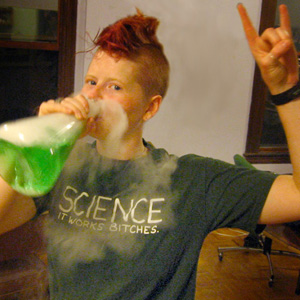
Two dharma quotes from Snow Lion Publications that touch on the Rainbow Body of tantric Buddhism.
Observing the Mind Itself~ From A Concise Introduction to Tibetan Buddhism by John Powers, published by Snow Lion Publications
The primary meditative technique of great perfection is remaining in the state of pure awareness. This is accomplished by calming the mind and then abiding in comprehension of its basic clear light nature. The meditative practice involves being cognizant of the arising and passing away of feelings, emotions, sensations, etc., but understanding them within the context of pure awareness. The more one does this, the more one realizes that all phenomena arise from mind and remerge into it. They are of the nature of pure awareness and are a projection of luminosity and emptiness. Through cultivating this understanding, mental phenomena of their own accord begin to subside, allowing the clear light nature of mind to become manifest. They appear as reflections on the surface of a mirror and are perceived as illusory, ephemeral, and nonsubstantial.
Those who succeed in this practice attain a state of radical freedom: there are no boundaries, no presuppositions, and no habits on which to rely. One perceives things as they are in their naked reality. Ordinary beings view phenomena through a lens clouded by concepts and preconceptions, and most of the world is overlooked or ignored. The mind of the great perfection adept, however, is unbounded, and everything is possible. For many beginners, this prospect is profoundly disquieting, because since beginningless time we have been constricted by rules, laws, assumptions, and previous actions. One who is awakened, however, transcends all such limitations; there is no ground on which to stand, no limits, nothing that must be done, and no prohibitions. This awareness is bottomless, unfathomable, immeasurable, permeated by joy, unboundedness, and exhilaration. One is utterly free, and one's state of mind is as expansive as space. Those who attain this level of awareness also transcend physicality and manifest the "rainbow body" ('ja lus), a form comprising pure light that cannot decay, which has no physical aspects, and which is coterminous with the nature of mind.
Dalai Lama Quote of the Week~ From The Path to Enlightenment by H.H. the Dalai Lama, edited and translated by Glenn H. Mullin, published by Snow Lion Publications
A tantric yogi who has gained control of the subtle energies of the body and the subtle levels of consciousness will have control over the inner and outer elements and consequently can transform his or her ordinary samsaric form into a joyous rainbow body. But until we can do this, we have to accept the fact that our physical basis is a magnet attracting every kind of discomfort and pain.
...This samsaric body keeps us running all of our lives. We have to run to fulfill its endless needs, to keep it away from things that may harm it, and to protect it from anything unpleasant. We have to give it pleasure and comfort. We become ordained, and at first this is very satisfactory; but soon our body makes it so difficult for us that we think our practice would be less disturbed if we were to live as a layperson. So we give up and return to ordinary life; but then we end up with a family to support, leaving us with no time or energy for meditation. We have the pressing tasks of feeding, clothing, and sheltering our children, and of arranging their education and so forth. Our lives are spent alternating between work and worry, with occasional short periods of pleasure, and then we have to die; but even this we cannot do in peace, for, when we lie down to die, our last thoughts are worried ones concerning the family we are leaving behind. Such is the nature of worldly existence.
...To care for our old people--these ones who have given us our body, our life, and our culture--is a sacred duty of humanity. But most humans act more like animals than people, and often we see old people who have been abandoned by their families. Family units were very strong in Tibet, and old people were usually cared for directly by relatives. The national care for the old that we see in the West is something very good, a healthy sign, although perhaps here the spiritual and psychological basis is somewhat lacking.
The suffering of old age is something we all must face, unless we die prematurely. There is nothing we can do about it. Gone will be that false sense of personal ability and strength that made us so proud when we were young. Instead, helpers or friends will bathe us, dress us, spoonfeed us, and have to take us to the toilet. Rather than live under the delusion of permanence, we should engage in spiritual training so that we can enter old age at least with the grace of wisdom.
...So we can see that this body indeed causes us much grief in this life and, sadly, in their quest to satisfy its many needs, most people just collect an endless stream of negative karmic instincts that will lead them to lower rebirths in the future. These are the sufferings of the human world.
...The important point here is to become aware of the third type of suffering, the subtle suffering that pervades all imperfect existence, the all-pervading misery concomitant with having a perishable, samsaric base.... [All are] enmeshed in suffering because the nature of their body and mind is bound with compulsive cyclic processes. Until we develop the wisdom that is able to free the mind from these compelling forces, there is no doubt that we shall experience suffering throughout our lives, and that we shall continue to wander endlessly in the wheel of birth, life, death, and rebirth where the presence of misery can always be felt.





